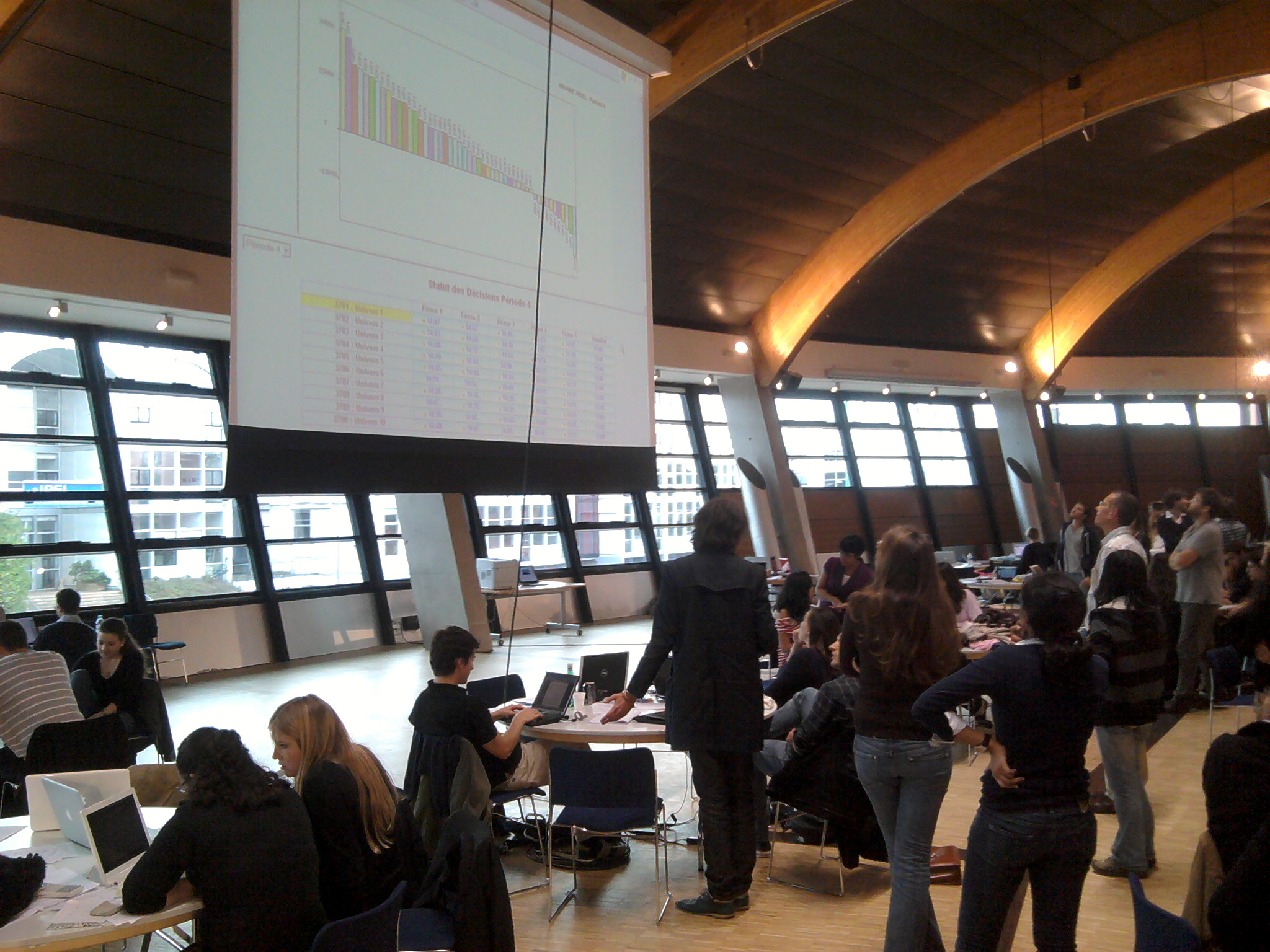Author: Alexander Stanza Tan, Indonesia
We, the double masters students, joined an orientation week for new students at ESSEC. At the end of the orientation week, we played a business simulation game, called “Ariane Game”. There were roughly 250 participants in this game where we were all divided into 10 universes, each universe having 5 groups. In groups of 5, the students would manage a ‘company’ that sells ski and racket products to compete with the 4 other companies within the same universe.
To motivate us, ESSEC gave out prizes for the winner of each universe and for the winner of a specific category, e.g. best presentation, best forecast, etc. To make the game a little bit more challenging, we could sell 3 types of products: ski elite, ski 2000 and racket. The qualities of the ski elite and the racket were fixed while we had freedom to define our own ski 2000 quality. Of course, this complicated the pricing strategy. Furthermore, the interest rate for financing the company may change along the way when the demand for financing increases.

The ‘scariest’ moment of the game as results were being announced!
My team consisted of 2 other new ESSEC students, one from a double masters student from Mannheim University, and the other member, a double masters student from The NANYANG MBA as well. In our first meeting, I proposed to formulate a broad objective while focusing on our individual roles. We decided to adopt the low-cost strategy and divided the company into 3 main parts: Marketing, Production and Financing. Since I am pursuing my MBA with a specialization in Finance, I took on the finance role.
Leveraging my computing skills and knowledge that I gained from The NANYANG MBA, I constructed an Excel spreadsheet to ease the financing decision. This allowed us to foresee 4 periods ahead of us. As a result, we were able to forecast our cash inflow and outflow with around 1-2% error and to generate sustainable profit. We ended up being the second highest gainer in our universe. Fortunately, impressed by our management capability, the judges chose us to be the winner of our universe. Additionally, we won the “Best Financial Forecast” title as well!
From this game, I learned that everyone in the same company must go toward the same goal. To do so, everyone in the company must think of themselves as being in a team. They must trust each other and contribute the best they can for the team. No one should regret the mistakes they made, instead, learn from them and move forward. I also learned that forecasting sales is difficult and making financing decisions play a major role within a company. Some firms were bailed out, while some others went bankrupt.
What I also realized from this game is, without a good understanding of Cost Accounting, a company may overstate or understate its profitability, or worse it may end up in losses. Cost Accounting also provides guidance for a company’s production department to realize that it increases unitary cost if the department cuts down its production.
I feel very fortunate to have this opportunity to come to ESSEC and to experience this game, and I personally wish that my colleagues in The NANYANG MBA can participate in similar business simulations or case competitions as well. It will not only give them the necessary experiences in a business environment but also make them apply all that they have learned from The NANYANG MBA.
I cannot imagine how I was a Computer Engineer when I first entered The NANYANG MBA, but by now, I can really see the progress I am making and I look forward to the day when I will run my own company very soon in the future.

You must be logged in to post a comment.